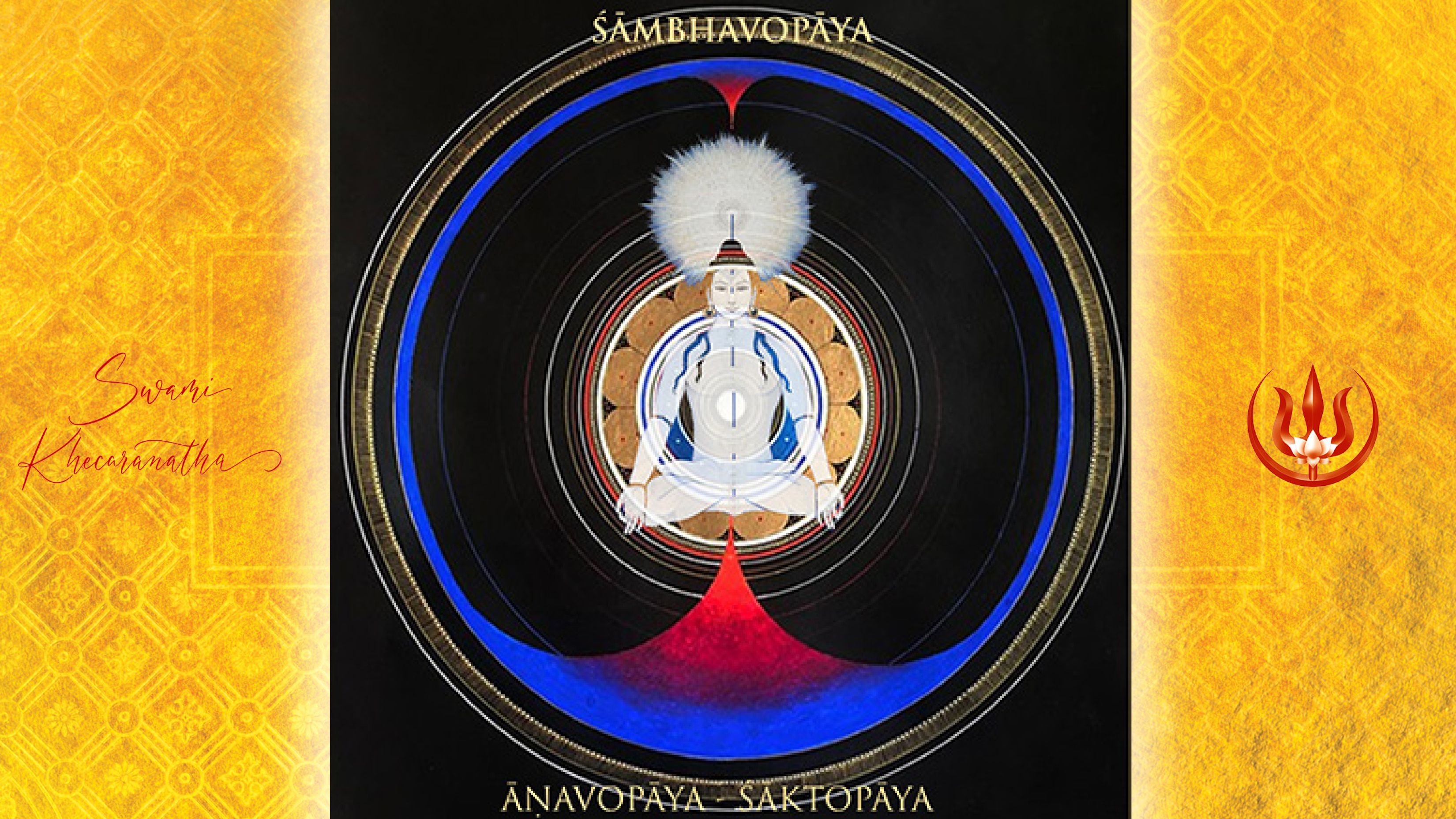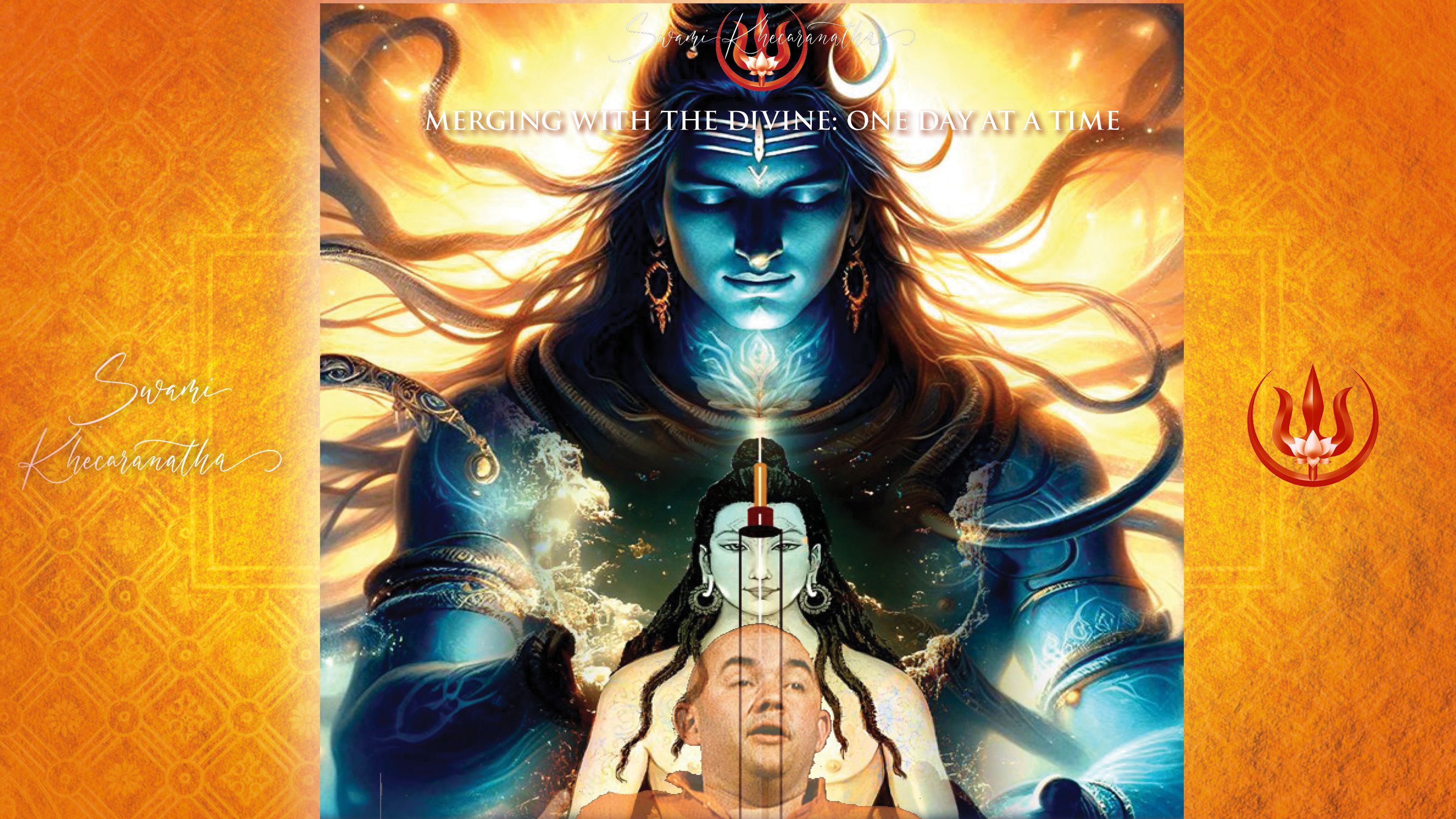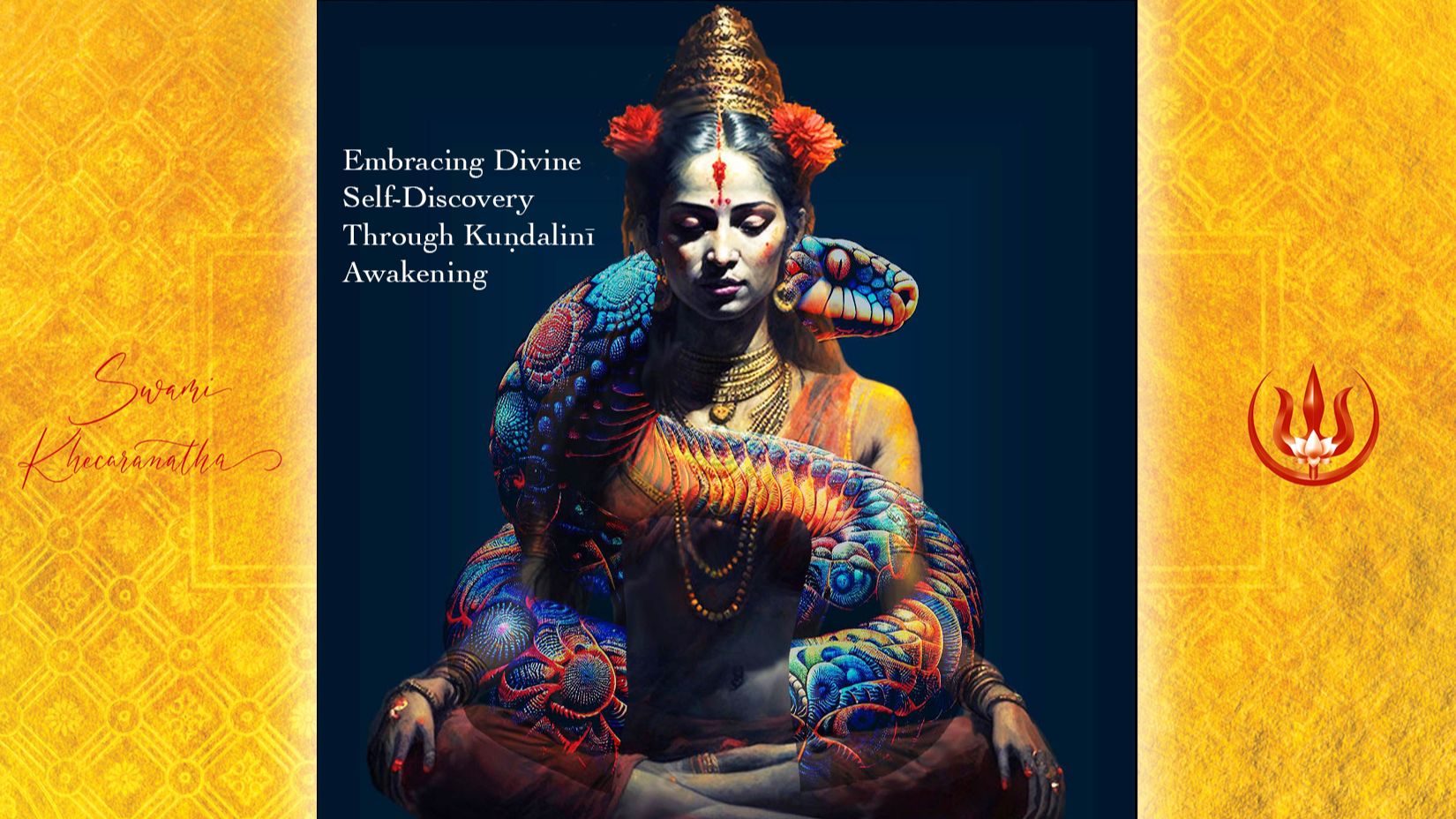The Role of the Guru: A Living Current of Grace

For thousands of years, seekers in many spiritual traditions have turned toward the figure of the guru—not as a personality, but as a principle. One of the most exquisite scriptural expressions of this principle is the Guru Gita, the “Song of the Guru.” Scholars debate when it was written: some place it in the 17th century, while others claim it existed long before.
But regardless of the date, it is the resonance of the chant that is so significant. When we listen to it in the depth of our heart, the Guru Gita serves as an invitation to experience the liberating Grace that flows to us through the guru, the teacher, the lineage, and ultimately, from Consciousness Itself.
The Guru Principle and the Means of Awakening
The image above beautifully illustrates what is known in the nondual Tantric tradition as the Guru Tattva. In the Shiva Sutras, one of the most important texts of the Śaiva nondual teachings, the process of awakening is described through three means, or upāyas: Śāmbhavopā...
The Gift of Selfless Service

In this holiday season, we often give to charities as an act of service. While this is certainly generous, there is another form of giving that can really open us to a deeper consciousness and propel our spiritual growth.
We have been given the opportunity to know and love the Divine—to experience a lifetime of growth and celebration. In return, we offer our gratitude and selfless service in appreciation for the Grace we have received.
Selfless service, or seva, comes from an open heart and is centered in a profoundly simple place within. The desire to serve arises from the merging of our heart with the heart of God, in a state of complete surrender. Selfless service is simply the natural expression of the love, gratitude, and devotion we feel. We can’t help but think, “How can I give back to the life that has given me this joy?” Nityananda expressed this beautifully when he said, “As is your devotion, so is your liberation.”
Service is a reflection of the awareness we connect to i...
The Commitment Checklist

The soul’s pain of separation and the longing to be reunited is equally matched by the egoic fear of being dissolved. This is why it is so important that we remain aware of our power to choose, because we must consciously choose Oneness instead of separation. — Swami Khecaranatha
In the image, above, there is a checklist of how we can choose real freedom in our lives. Let’s look at them one by one.
1. I am willing to give up my dubious freedom of following dualistic rationale, knowing that I am in fact losing nothing and gaining the possibility of everything.
This is a bold statement but is perhaps the easiest to mark checked! However, we must remember that any commitment we make is meaningless if we fail to follow through with action. In our search to know the highest in ourself, it is our actual unwillingness to live in the commitment that disqualifies our stated willingness to do so.
There is such extraordinary grasping and holding on to what we think freedom is. We have set ...
Joy or Suffering: Why We Turn Toward Spiritual Practice

Each of us must ask, with honesty and humility: Why do I engage in spiritual practice?
Is it to escape pain — or to awaken to joy?
For most seekers, the journey begins in suffering. We are pushed by life’s pressures such as loss, confusion, or loneliness and start to search for peace. Yet as practice deepens, something shifts within us. We realize that the path is not about running from pain but about discovering the joy that has always been our true nature.
In the beginning, pain can seem like an obstacle needing to be removed. But in truth, pain is a doorway. It reveals our longing for something beyond what the senses and intellect can satisfy. This desire to know the deeper Self is the Divine calling Itself back home, within our own awareness.
Pain can be seen as Grace wearing a disguise. It invites us to stop searching outside ourselves and to rest in the awareness that is already whole. Suffering is not punishment but the Divine Self reminding us: You have forgotten who you are...
Over the Rainbow: Finding the Light Within

There’s a timeless question asked in the movie The Wizard of Oz:
“If birds fly over the rainbow—why, oh why, can’t I?”
This expresses a yearning that resonates with anyone who’s ever felt limited by their own experiences, their own perceptions, their own self. It conveys our desire to transcend the boundaries of ego and awaken to a deeper, freer sense of being.
But this longing isn’t about being in some distant dreamland. It’s about right here, right now—in the context of our own daily lives.
The Spectrum of Light
A rainbow is light, refracted into a spectrum of color. And that light, in its essence, is always there—even when we can’t see the full arc.
In the same way, consciousness is the spectrum of all experience. Sometimes we perceive only a fragment, a faint glimmer of color, and mistake that for the whole. But the full spectrum is always present within us, waiting to be seen when we stop limiting our perception of it.
In Sanskrit, this inner radiance is known as prakāśa—th...
Get Bigger

People often feel that life is presenting them with more than they can handle. My teacher Rudi said this: “Bite off twice as much as you can chew and then chew it.”
When you come face-to-face with something bigger than you think you want to bite or bigger than you think you can chew, the tendency is to say, “No, I don't want to do that.” But the dynamic is being presented to you by your own Self. That deeper intelligence is offering you some rocket fuel—the very energy that you need to consume and transform into Śakti so that it can make you bigger, create a bigger consciousness in you.
It is only the mind, your thoughts and ego, that says, “That's too big for me.” There’s a classic analogy of how a python can swallow a deer. The python dislocates its jaw big enough to swallow its prey. It doesn't get it halfway in and say, “this doesn't taste very good,” or, “this is too big.” It just relaxes its jaw, making it wide enough to accommodate whatever size it’s trying to devour.
So, for...
Embracing Divine Self-Discovery Through Kuṇḍalinī Awakening

This discussion was adapted from Nathaji's September 6 Satsang. You can watch a video of the event here.
Every spiritual journey begins with a moment: a quiet whisper, a sudden shift, or a deep question that emerges seemingly out of nowhere. For some, it is subtle—a fleeting thought like “Is this all there is?” For others, it is a dramatic awakening. Regardless of how it arrives, this moment is often described as Grace, a spark that ignites the longing to know our true Self.
In the tradition of Kuṇḍalinī awakening, this longing is not seen as random or accidental. Rather, it is the Divine calling us inward, reminding us of who we truly are. This journey of discovery is not about rejecting life as it is, but about recognizing that every breath, every challenge, and every moment carries the potential for liberation and joy.
The Call of Grace
Spiritual traditions across the world describe an initial spark that draws us inward. In nondual Kashmir Śaivism this is known as śaktipata—the ...
Turning Tension Into Flow

One of the remarkable things about humans is the superficiality we are willing to accept in ourselves, and the superficiality we bring to our search for depth. We must work to develop the psychic mechanism in us that can hold the structure of higher consciousness.
A student came to me recently and said, “I’m really a mess and haven’t meditated in a long time.” This is a story I hear repeatedly, and perhaps you’ve had a similar experience. We can get so absorbed by drama, tension, and the pressures of our life that we are pulled out of ourselves. We push, demand, and are consumed by struggling with our own experience.
All struggle is ego. To say this is not to deny that we face challenges. But we allow our engagement with these difficulties to make us forget that they are only a reflection of our own state, of our misunderstanding. The fundamental discipline is to not allow ourselves to be caught in struggle, and we do that by simply taking a breath and turning our awareness and energ...
Liberation While Alive - Part Two

Unconditional joy is the result of freeing ourselves from the most entrenched veils of duality.
If liberation is what we seek, how could it be anything less than joyful to remove another layer of non-liberation? By doing that, we are fulfilling our obligation to God, our duty to reveal the highest in ourselves. But our work of loosening the grip of the ego requires the complete dissolution of all self-absorption, because experiencing individuality in that manner is the opposite of revealing the highest.
It takes as much work to sustain a state of awareness as to attain it. Sādhana doesn’t stop: We don’t just get enlightened and go on vacation. That kind of thinking demonstrates the inherent capacity of the veils of duality to cover back up what looks like apparent freedom. The state of jīvan mukti is hard to attain. It is the complete dissolution of any separation, any difference, any thought that “I am the doer.” Even a person who is deeply established within will, at some point, ...
Liberation While Alive - Part One

On attaining the bliss of Consciousness, there is permanent perception of Oneness with Consciousness even when perceiving the body and so on. This is liberation while alive.
This sutra from the Pratyabhijñā Hṛdayam (The Heart of Recognition) by the Tantric master Kṣemarāja describes the state of a liberated yogi. The highest Consciousness is available to each of us, but if your liberation is not the most important thing to you, you will not have it. If you are not prepared to surrender yourself completely, you will not live in freedom.
Spiritual freedom is not found outside the context of our own lives. We can—and must—be free even while we have a body, a job, and relationships with others. In fact, freedom is understanding and experiencing that everything in our life is an integral part of the manifestation of our own consciousness. Nothing is separate from us. This is called jīvan mukti, freedom while alive.
Attaining it is the very purpose of our life. We are liberating ourselve...
